“Law is not just a profession, it is a responsibility towards society.”
– Kapil Sibal
Advocate Kapil Sibal is a well-known figure in Indian law and politics. He has served as a Senior Advocate in the Supreme Court and as Minister Kapil Sibal in various government roles.
His career is marked by key legal victories and important political contributions. Here, let’s talk about his life, education, major cases, and more, providing a complete picture of his biography and impact.
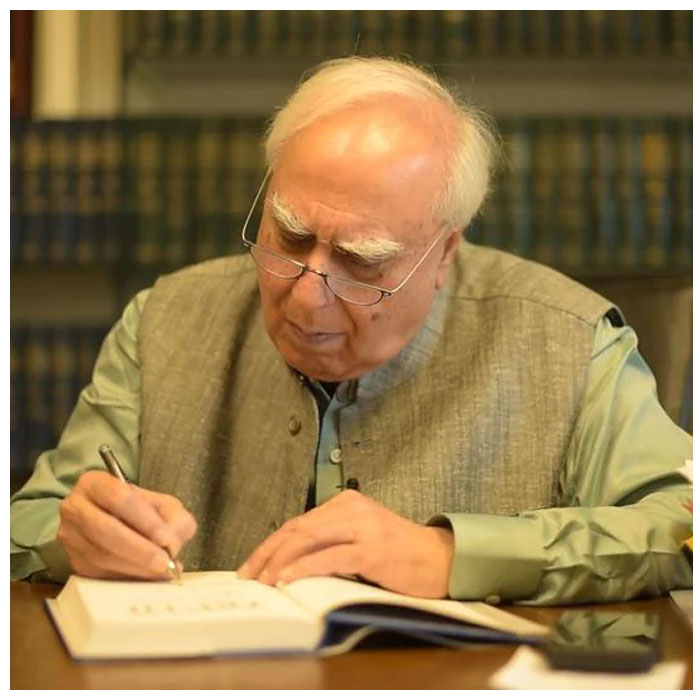
Kapil Sibal Biography: Overview
| Detail | Description |
| Full Name | Kapil Sibal |
| Date of Birth | August 8, 1948 |
| Place of Birth | Jalandhar, Punjab, India |
| Nationality | Indian |
| Parents | Hiralal Sibal (Father) and Kailash Rani Sibal (Mother) |
| Education | – St. John’s High School, Chandigarh |
| – B.A. (History), St. Stephen’s College, Delhi University (1965) | |
| – LLB, Faculty of Law, Delhi University (1972) | |
| – LLM, Harvard Law School (1977-1978) | |
| Profession | Lawyer, Politician |
| Political Party | Indian National Congress (INC) |
| Spouse | Nina Sibal (married 1973; died in 2000)Promila Sibal (married 2005) |
| Children | Two sons, Amit Sibal and Akhil Sibal |
| Positions Held | – Senior Advocate, Supreme Court of India |
| – Additional Solicitor General of India (1989-1990) | |
| – Member of Parliament, Rajya Sabha (1998, multiple terms) | |
| – Member of Parliament, Lok Sabha (2004-2014) | |
| – Minister of Science and Technology (2004-2009) | |
| – Minister of Earth Sciences (2004-2009) | |
| – Minister of Human Resource Development (2009-2012) | |
| – Minister of Communications and Information Technology (2010-2014) | |
| – Minister of Law and Justice (2013-2014) | |
| Notable Cases | – Ram Janmabhoomi-Babri Masjid Case |
| – 2G Spectrum Case | |
| – Triple Talaq Case | |
| – Rafale Deal Controversy | |
| – Hadiya Case (Right to Choose) | |
| – Vodafone Tax Case | |
| Major Contributions | – Right to Education Act (2009) |
| – Promotion of scientific research and technological innovation | |
| – Telecom reforms and resolving 2G spectrum issues | |
| Books Authored | – “My World Within: Poems by Kapil Sibal” |
| – “I Witness: Partial Observations” | |
| – “Shades of Truth: A Journey Derailed” | |
| Personal Interests and Hobbies | – Writing and Poetry |
| – Music | |
| – Reading | |
| Official Website | https://www.sibalkapil.com/ |
Kapil Sibal: Early Life and Family Background
Kapil Sibal was born on August 8, 1948, in Jalandhar, Punjab, India. He comes from a family with a strong academic background. His father, Hira Lal Sibal, was a renowned advocate, which influenced Kapil’s interest in law from an early age.
During his childhood, Kapil lived in various parts of India due to his father’s legal career, giving him exposure to different cultures and languages. He completed his schooling in Delhi, where he developed a keen interest in academics and debating.
His brother Kanwal Sibal has been the former Foreign Secretary of India. After the father became homeless during Partition of India, his family had to take refuge in India. In 1964, Kapil Sibal moved to Delhi.
Kapil Sibal Wife
Kapil Sibal was married to Nina Sibal in 1973, who died of breast cancer in 2000. He had two sons from his first marriage – Amit Sibal and Akhil Sibal, both lawyers.
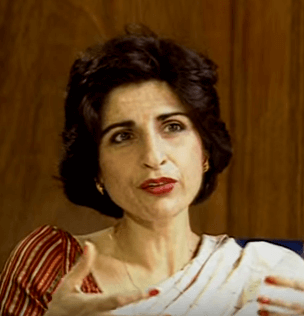
In 2005, he remarried Promila, a social worker.
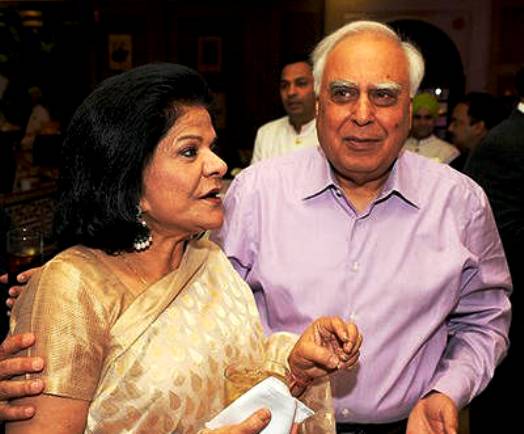
Interests and Hobbies
- Writing and Poetry: Sibal is an accomplished writer and poet. He has published several books of poetry and essays, expressing his thoughts on various subjects, including politics, society, and personal reflections.
- Music: He has a keen interest in music and enjoys listening to various genres. Music is a significant part of his relaxation and leisure activities.
- Reading: Sibal is an avid reader, with a particular interest in history, law, and literature.
Important Things to Know
- In 1972, Kapil Sibal joined the Bar Association. In 1973 Kapil Sibal passed the IAS examination. He was enlisted as an officer but continued his legal practice while not working.
- In 1983, he was nominated as Senior Advocate and in 1989, he was appointed as Additional Solicitor General of India.
- He was the first lawyer to appear in Parliament in 1994, who successfully defended a Supreme Court judge during impeachment proceedings. The said impeachment motion was tabled in the Assembly on 10 May 1993 for debate and voting.
- On that day, there were 401 members in the Assembly, of which 196 voted in favor of impeachment, with no vote in protest. The ruling Congress and allies abstained from voting.
- He was the President of the Supreme Court Bar Association three times, 1995–96, 1997–98 and 2001–2002 respectively.
Must Know: Constitution Day of India
Kapil Sibal Education
- Kapil Sibal completed his schooling at St. John’s High School in Chandigarh in the early 1960s, where he was known for his academic performance and active participation in debates and extracurricular activities.
- After finishing school, Kapil Sibal pursued his higher education at St. Stephen’s College, Delhi University. He earned his Bachelor of Arts degree with honors in History in 1965. His time at St. Stephen’s further honed his analytical and oratory skills, laying a strong foundation for his future career in law and politics.
- Following his undergraduate studies, Kapil Sibal decided to study law. He enrolled in the Faculty of Law at Delhi University, where he obtained his LLB degree in 1972. His legal education provided him with a deep understanding of the intricacies of the law and the judicial system in India.
- To further his knowledge, Kapil Sibal went to Harvard Law School in the United States in 1977, where he earned a Master of Laws (LLM) degree in 1978. His education at Harvard exposed him to international legal principles and broadened his perspective, equipping him with the skills to tackle complex legal issues.
| Education Level | Institution | Degree | Year of Completion |
| Schooling | St. John’s High School, Chandigarh | High School | Early 1960s |
| Undergraduate | St. Stephen’s College, Delhi University, Delhi | B.A. (History) | 1965 |
| Law Degree (LLB) | Faculty of Law, Delhi University, Delhi | LLB | 1972 |
| Master of Laws (LLM) | Harvard Law School, USA | LLM | 1978 |
Related Post: Lawyer Ram Jethmalani: All Details
Famous Cases of Kapil Sibal
Below are some of the big cases of advocate Kapil Sibal:
1. Ram Janmabhoomi-Babri Masjid Case
It was one of the most significant and contentious legal battles in Indian history, revolving around the disputed land in Ayodhya, Uttar Pradesh.
Role: Represented the Sunni Waqf Board.
Legal Strategies and Arguments: Adv Kapil Sibal argued for maintaining the status quo and emphasized the need for a peaceful resolution through dialogue. He highlighted historical evidence and legal precedents to support the Sunni Waqf Board’s claim.
Outcome: The Supreme Court ruled in favor of constructing the Ram temple while allotting alternative land for the mosque.
2. 2G Spectrum Case
Involved allegations of corruption in the allocation of 2G spectrum licenses.
Role: Advocate Kapil Sibal defended several accused individuals, including politicians and business leaders.
Legal Strategies and Arguments: Sibal focused on the lack of concrete evidence and procedural lapses in the investigation. He also questioned the interpretation of loss estimates and the applicability of certain charges.
Outcome: The trial court acquitted all accused due to insufficient evidence.
3. Triple Talaq Case
Challenged the practice of instant divorce (triple talaq) in Islamic law.
Role: Represented the All India Muslim Personal Law Board (AIMPLB).
Legal Strategies and Arguments: Adv Kapil Sibal defended triple talaq as a matter of religious freedom under Article 25 of the Indian Constitution. He argued that the judiciary should not interfere in religious practices.
Outcome: The Supreme Court declared the practice unconstitutional, leading to significant changes in Muslim personal law.
4. Rafale Deal Controversy
Involved allegations of corruption and procedural irregularities in the procurement of Rafale fighter jets.
Role: Challenged the government’s decision in the Supreme Court.
Legal Strategies and Arguments: Lawyer Kapil Sibal questioned the transparency and pricing of the deal, seeking a detailed investigation. He argued for the need for judicial scrutiny of defense procurement processes.
Outcome: The Supreme Court dismissed the petitions, stating there was no occasion to doubt the decision-making process and pricing.
5. Hadiya Case (Right to Choose)
Dealt with a woman’s right to choose her religion and spouse.
Role: Represented Hadiya’s father.
Legal Strategies and Arguments: Lawyer Kapil Sibal argued that Hadiya was a victim of ‘love jihad’ and that her conversion and marriage were not of her free will. He sought a detailed investigation into the circumstances.
Outcome: The Supreme Court upheld Hadiya’s right to choose her religion and marry according to her will.
6. Vodafone Tax Case
Involved a tax dispute over capital gains from Vodafone’s acquisition of Hutchison Essar.
Role: Represented Vodafone.
Legal Strategies and Arguments: Adv Kapil Sibal argued that the transaction was structured outside India and thus not subject to Indian tax laws. He emphasized the principle of legal certainty and fair treatment of foreign investments.
Outcome: The Supreme Court ruled in favor of Vodafone, stating the transaction was not taxable in India.
7. Tata Sons vs. Cyrus Mistry Case
Involved in the corporate governance dispute between Tata Sons and its former chairman, Cyrus Mistry.
Role: Represented Tata Sons.
Legal Strategies and Arguments: Advocate Kapil Sibal argued that the board’s decision to remove Mistry was within its rights and done in the best interest of the company. He emphasized the procedural correctness of the removal process.
Outcome: The Supreme Court upheld Tata Sons’ decision to remove Mistry.
8. Aadhaar Case
Dealt with the constitutional validity of the Aadhaar system and its mandatory linking with services.
Role: Argued against mandatory linking of Aadhaar.
Legal Strategies and Arguments: Advocate Kapil Sibal raised concerns over privacy and data security, citing the right to privacy as a fundamental right. He also questioned the potential misuse of biometric data.
Outcome: The Supreme Court upheld the constitutionality of Aadhaar but restricted its mandatory use.
9. Novartis vs. Union of India Case
Involved the patent protection of Novartis’ cancer drug Glivec.
Role: Represented the Indian government.
Legal Strategies and Arguments: Adv Kapil Sibal argued that the patent did not meet the criteria under Indian law, focusing on the need to prevent ‘evergreening’ of patents and ensure access to affordable medicines.
Outcome: The Supreme Court rejected Novartis’ patent application.
10. National Herald Case
Involved allegations of financial misappropriation by top Congress leaders in acquiring Associated Journals Limited.
Role: Represented Sonia Gandhi and Rahul Gandhi.
Legal Strategies and Arguments: Advocate Kapil Sibal defended the legality of the transactions and questioned the motives behind the allegations. He highlighted the procedural correctness and transparency of the actions taken.
Outcome: The case is ongoing, but Sibal’s defense has been crucial in the legal strategies employed by the accused.
Must Read: Best Female Lawyers of India
11. Sahara-SEBI Case
Involved Sahara Group’s failure to refund money to investors, leading to SEBI’s legal action.
Role: Represented the Sahara Group.
Legal Strategies and Arguments: Adv Kapil Sibal questioned the jurisdiction and procedural fairness of SEBI’s directives. He argued for a more lenient repayment schedule, considering the group’s financial constraints.
Outcome: The Supreme Court directed Sahara to refund over ₹24,000 crore to investors.
12. Delhi Government vs. Lieutenant Governor Case
Dealt with the power tussle between the Delhi government and the Lieutenant Governor.
Role: Represented the Delhi government.
Legal Strategies and Arguments: Adv Kapil Sibal argued for greater autonomy for the elected government, emphasizing the principles of federalism and democratic governance. He highlighted the need for a clear demarcation of powers.
Outcome: The Supreme Court ruled that the Lieutenant Governor must act on the aid and advice of the elected government, except in matters of land, police, and public order.
13. Yakub Memon Mercy Petition
Involved the last-minute legal battle to save Yakub Memon, convicted in the 1993 Mumbai bomb blasts, from execution.
Role: Part of the legal team that filed a mercy petition.
Legal Strategies and Arguments: Sibal argued procedural lapses and sought a stay on the execution, emphasizing the need for a thorough review and fair treatment.
Outcome: The Supreme Court rejected the petition, and Yakub Memon was executed.
14. BCCI vs. Cricket Association of Bihar Case
Involved internal reforms of the Board of Control for Cricket in India (BCCI) following allegations of corruption.
Role: Represented the BCCI.
Legal Strategies and Arguments: Sibal defended against the recommendations of the Justice Lodha Committee, arguing for the autonomy of sports bodies and the need for gradual reforms.
Outcome: The Supreme Court accepted the committee’s recommendations, leading to significant changes in cricket governance in India.
Must Know: Scope of Law in India
Kapil Sibal Fees
Advocate Kapil Sibal is renowned not only for his legal skills but also for being one of the richest and highest-paid lawyers in India. His fees reflect his stature and expertise in the legal field.
Average Fees of Kapil Sibal Per Hearing
Kapil Sibal charges between INR 8 to 16 lakh per hearing in the Supreme Court. This range makes him one of the most expensive lawyers in the country.
Notable Cases and Specific Fees
- Ranchi Government Corruption Case: In this high-profile public interest litigation (PIL) accusing the administration of corruption, Kapil Sibal represented the state government of Ranchi. For this case, he charged INR 22 lakh per hearing. As of a certain point, the state government had paid him a total of INR 1.54 crore for his services.
- Kerala Government Gold Smuggling Case: Kapil Sibal appeared for the Kerala government in the gold smuggling case. For each appearance in the Supreme Court, he was paid INR 15.5 lakh.
Minister Kapil Sibal: The Political Career
Kapil Sibal entered politics in the late 1990s, using his legal expertise and public recognition to make a mark in the political area. He joined the Indian National Congress (INC).
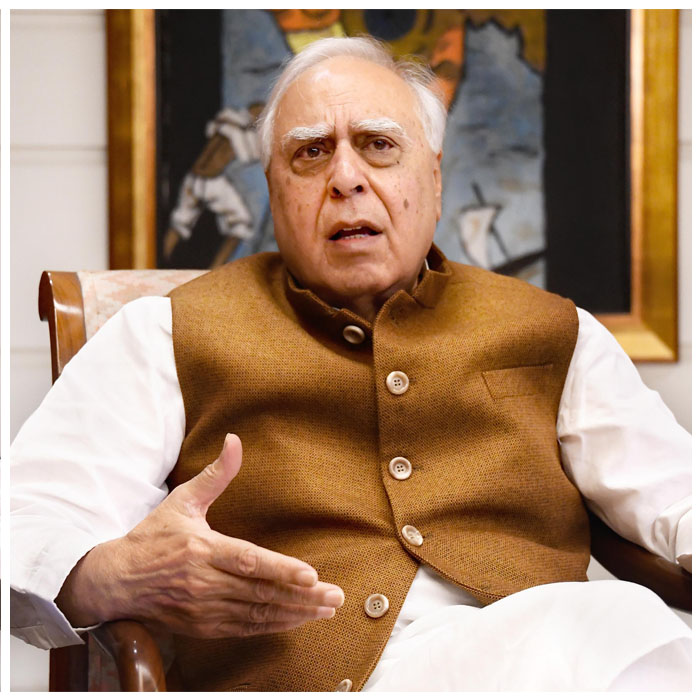
He held various positions, including:
| Position | Tenure | Details |
| Member of Parliament (Rajya Sabha) | 1998 (first term), re-elected | Party: Indian National Congress |
| Member of Parliament (Lok Sabha) | 2004 and 2009 | Constituency: Chandni Chowk, Delhi |
| Minister of Science and Technology | May 2004 to May 2009 | Promoted scientific research and technological innovation, enhanced scientific infrastructure |
| Minister of Earth Sciences | May 2004 to May 2009 | Managed meteorology, oceanography, and environmental sciences, focused on sustainable development and climate change |
| Minister of Human Resource Development | May 2009 to October 2012 | Introduced Continuous and Comprehensive Evaluation (CCE) in CBSE, aimed to make education more inclusive and accessible |
| Minister of Communications and IT | November 2010 to May 2014 | Managed telecom and IT policies, resolved 2G spectrum issues |
| Minister of Law and Justice | May 2013 to May 2014 | Oversaw legal and judicial reforms, represented the government in significant legal matters |
Major Contributions and Legislative Achievements of Kapil Sibal
- Right to Education Act (2009): As the Minister of Human Resource Development, Sibal was instrumental in the implementation of the Right to Education Act, which aimed to provide free and compulsory education to children aged 6 to 14.
- Promotion of Scientific Research: As the Minister of Science and Technology, he promoted scientific research and innovation, enhancing India’s capabilities in these fields.
- Telecom Reforms: During his tenure as the Minister of Communications and IT, he worked on resolving issues in the telecom sector, particularly after the 2G spectrum scandal, and aimed to bring more transparency and efficiency to the sector.
Suggested reading: Highest-Paying Fields of Law in India
Kapil Sibal Net Worth 2024
Kapil Sibal is one of the wealthiest lawyers in India, with a substantial net worth of INR 605.11 crores. Here is a detailed breakdown of his assets:
| Asset Type | Details | Value (INR) |
| Total Assets | 605.11 crores | |
| Movable Assets | Total Movable Assets | 373 crores |
| Current Movable Assets | 307 crores | |
| Immovable Assets | 232 crores | |
| Wife’s Movable Assets | 68 crores 46 lakh 32 thousand 760 | |
| Jewelry | Kapil Sibal | 44 lakh 33 thousand |
| Wife | 1 crore 35 lakhs | |
| Cash in Hand | 2 lakh 41 thousand 42 | |
| Bank Deposits | Various banks | 85.37 crores |
| Loans and Advances | Given loans and advances | 164.84 crores |
Kapil Sibal Books
Advocate Kapil Sibal has written a number of books:
My World Within: Poems by Kapil Sibal
A collection of poems that delve into personal reflections, societal issues, and philosophical musings. The book offers a glimpse into the thoughts and emotions of Kapil Sibal through his poetic expressions.
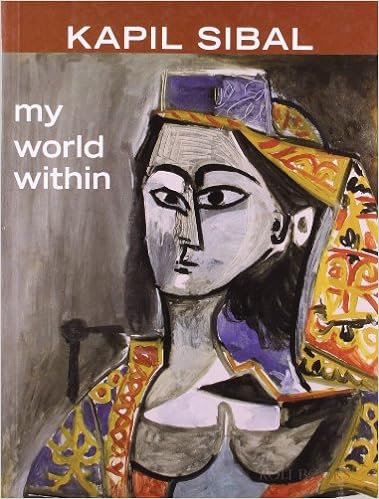
I Witness: Partial Observations
This book comprises essays and articles written by Kapil Sibal, reflecting on various political, social, and economic issues. It provides insights into his perspectives on contemporary events and his experiences in public life.
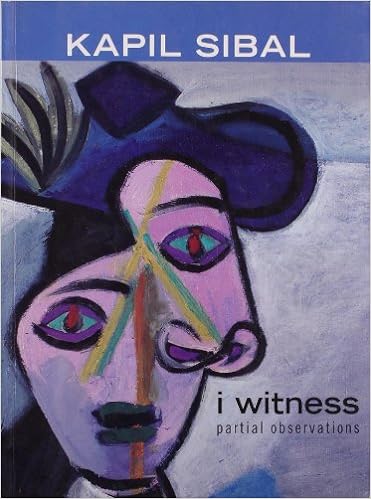
Shades of Truth: A Journey Derailed
Co-authored by Kapil Sibal, this book critically examines the political landscape of India and the factors that have influenced its development. It discusses the derailment of democratic processes and the challenges faced by the nation.
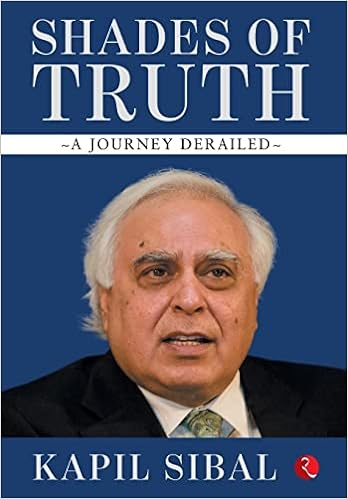
Key Issues and Political Associations
Kapil Sibal on Article 370
Kapil Sibal has been a vocal critic of the abrogation of Article 370, which granted special status to Jammu and Kashmir. He argued that the manner in which Article 370 was abrogated was unconstitutional and bypassed the democratic process.
Sibal emphasized that the abrogation undermined federal principles and that such a significant change required greater consultation and consensus, particularly with the people of Jammu and Kashmir.
Kapil Sibal on Uniform Civil Code (UCC)
Kapil Sibal has expressed concerns over the implementation of a Uniform Civil Code, suggesting that it should not be imposed without broad consensus and sensitivity towards India’s diverse cultural and religious communities.
Sibal has argued that while the idea of a UCC is enshrined in the Directive Principles of State Policy, its implementation should be approached cautiously, ensuring that it does not infringe on the rights of minority communities.
Kapil Sibal on Citizenship Amendment Act (CAA)
Kapil Sibal has been a strong opponent of the Citizenship Amendment Act, arguing that it is discriminatory and violates the secular principles of the Indian Constitution.
He contended that the Act, which provides a pathway to citizenship for non-Muslim refugees from neighboring countries, discriminates on the basis of religion and undermines the fundamental right to equality.
Kapil Sibal and Uddhav Thackeray
Kapil Sibal has represented Uddhav Thackeray, the leader of the Shiv Sena and former Chief Minister of Maharashtra, in various legal matters. His legal assistance has been particularly relevant during the political turmoil in Maharashtra, where Sibal provided counsel on constitutional and legal issues regarding government formation and party splits.
Kapil Sibal and Hemant Soren
Kapil Sibal has been involved in providing legal counsel to Hemant Soren, the Chief Minister of Jharkhand. He has represented Soren in cases concerning allegations of irregularities and other political challenges, defending his client’s position in court and advising on legal strategies.
Kapil Sibal and Tushar Mehta
Tushar Mehta is the Solicitor General of India, and Kapil Sibal, as a senior advocate, often encounters him in court, representing opposing sides in high-profile legal battles.
The professional interactions between Sibal and Mehta are marked by their respective roles, with Sibal often challenging the government’s legal positions defended by Mehta.
Must Read:
How to Become a Lawyer in India?
FAQs About Kapil Sibal
Kapil Sibal is a prominent Indian lawyer and politician. He has served as a Senior Advocate in the Supreme Court of India and has held various key ministerial positions in the Indian government, including Minister of Law and Justice, Minister of Communications and IT, and Minister of Human Resource Development.
—
Kapil Sibal earned his Bachelor of Arts degree with honors in History from St. Stephen’s College, Delhi University, in 1965. He then pursued an LLB from the Faculty of Law, Delhi University, in 1972 and later obtained an LLM from Harvard Law School in 1977-1978.
—
As the Minister of Human Resource Development, Kapil Sibal introduced the Continuous and Comprehensive Evaluation (CCE) system in CBSE schools and played a key role in the implementation of the Right to Education Act, which aimed to provide free and compulsory education to children aged 6 to 14.
—
Kapil Sibal was born on August 8, 1948. As of 2024, he is 75 years old.
—
Kapil Sibal was a member of the Indian National Congress (INC) for most of his political career. He later became an independent candidate supported by various parties.
—
Kapil Sibal is associated with the law firm “Kapil Sibal & Associates,” which he established.
—
Kapil Sibal’s brother is Kanwal Sibal, a former Indian Foreign Secretary and diplomat.
—
Kapil Sibal’s residence is in New Delhi, India.
—
Kapil Sibal belongs to the Punjabi Khatri community.
—
Kapil Sibal is married to Promila Sibal.
—
Kapil Sibal left the Indian National Congress in 2022. He decided to run as an independent candidate for the Rajya Sabha with support from the Samajwadi Party, citing the need for greater independence and a platform to address issues without party constraints.
—
Resources Related to Law Exams
Daily Current Affairs for CLAT